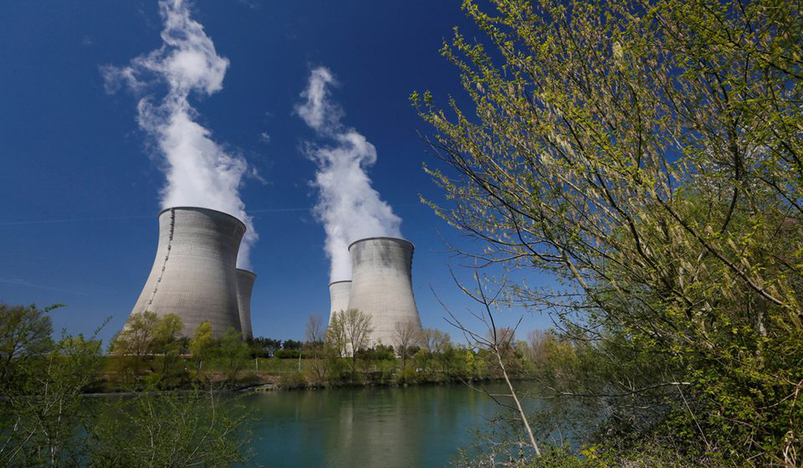
Steam rises from the cooling towers
Sweden overtook France as Europe's largest net power exporter in the first half of 2022, as deep-rooted problems reduced French nuclear availability to historic lows, Energy analysts EnAppSys said on Wednesday.
France usually exports more power than it imports, but structural problems with its nuclear fleet, which show no signs of improving, saw exports from the country halve compared to the previous year, while Sweden exported 16 terawatt hours (TWh), the company said.
Most of Sweden's electricity supply comes from nuclear, hydro and biofuels, with wind supply growing in the country as oil-fired generation declines, data from the International Energy Agency showed.
"Sweden's rise to the top of the exporting league table had more to do with France's shift from a net exporter earlier in the year to a net importer," EnAppSys said.
France has gone from being a net exporter of 21.5 TWh in the first half of 2021 to a net importer of 2.5 TWh in the first half of 2022 as imports doubled to 18.9 TWh and exports shrank to 16.4 TWh.
Sweden exported 7 TWh to Finland and 4 TWh to Denmark over the first half of the year, accounting for the majority of its export flows, the analylsts added.
Germany was the second largest net exporter at 15.4 TWh, double the levels recorded halfway through 2021, as power generation in the country responded to the import demand from France, the data showed.
Apart from its nuclear issues, high gas prices exaggerated France's net importer status because the economics were not conducive to exporting gas, which in turn further increased European gas prices, EnAppSys said.
Unless France can increase its output of nuclear power, it is unlikely to be able to help Germany over the peak demand winter months as it braces for possible rationing in the event of further reductions in Russian supply.
Nuclear availability in France was at half of the total installed capacity on Wednesday.
To boost supply, France's nuclear power regulator on Monday extended temporary waivers allowing five power stations to discharge hot water into rivers as the country contends with its fourth heatwave of the summer and an energy crisis.
Reporting by Forrest Crellin, additional reporting by Susanna Twidale and Nina Chestney in London; Editing by Mike Harrison and Barbara Lewis
REUTERS
.jpg)
Qatar Secures Place Among the World's Top 10 Wealthiest Nations
.jpg)
Hamad International Airport Witnesses Record Increase in Passenger Traffic

Saudi Arabia: Any visa holder can now perform Umrah

What are Qatar's Labour Laws on Annual Leave?
Leave a comment